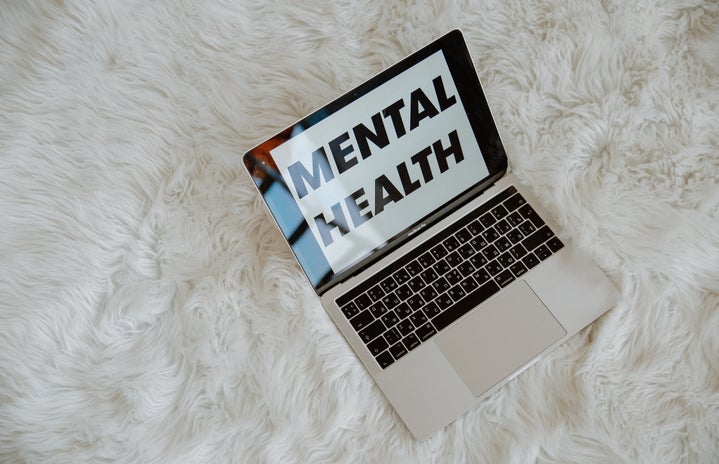The Covid-19 pandemic has brought changes to nearly every facet of our lives, and has consequently drawn attention to many societal issues that were previously overlooked. Perhaps one of the most significant examples is that of mental health. According to The World Health Organization, the pandemic has caused an understandable but significant spike in symptoms of anxiety and depression around the world as people fear for their health, their loved ones, and their financial security. For students and young people in particular, the pandemic has caused great uncertainty and displacement. However, as far as our community here at St Andrews is concerned, it’s important to remember that help is available. Like most universities, St Andrews offers students a plethora of mental health resources on campus – so many that it can feel quite daunting trying to wade through all the options and try to determine which are the best to meet your individual needs. While there are many options to choose from, they all have advantages and drawbacks. To help you navigate the system, here is my personal review of the top four resources available.
1. Nightline
Nightline is a great service for low risk issues. Say you’re stressed because you aren’t going to be able to make your essay deadline, you’re worried that you hurt your friend’s feelings and don’t know how to fix the situation, you miss home, etc. These are all great things to talk to Nightline about, as the service gives you an anonymous connection to a fellow St Andrews student who can relate to what you’re experiencing and can offer advice on what to do next or how to feel better. It’s best to use this service like a friend and confidant to bounce ideas off of. It’s important to remember that Nightline is not comprised of mental health professionals – these are students on the line. You should keep this in mind when using the service. If you’ve got a bigger issue you want to deal with but don’t know where to start with getting help, Nightline is a great place to begin.
2. University Wellbeing Advisors and Counselors
The University’s wellbeing resources are great if you are looking for self-help resources. They can give you access to various online guides to managing a myriad of common problems that students face, and provide solutions on how you can work on these problems on your own. If you struggle with mild mental health problems and prefer independent work, then this is a great option. However, if you are dealing with a more serious mental health condition or a chronic mental health condition, then the University is not the best place to turn in my opinion. While the counselors on staff are professionally trained, most work part-time, and there are not enough resources to set up a regular therapy-client relationship which your mental health might require. Much like Nightline, the University is a great place to start when looking for treatment, but should not be your end destination.
3. Pastoral Care
While I have not personally sought pastoral care, I think this is a great option for those struggling with abstract issues such as grief, crises of faith, philosophical queries, etc. A priest can help you work through questions such as “why do bad things happen?,” ”how do I keep going after losing a loved one?,” “why is ‘x’ world event happening and how do I conceptualize my relationship with it and the world itself?” I would suggest doing your research into how well they can accommodate your specific spiritual beliefs beforehand. Also, if the issue you’re dealing with touches on topics that are controversial in some religious settings (such as LGBT+ identities, women’s bodily rights, sexual intimacy, child-parent relationships, etc.), I would suggest double-checking the pastor’s personal views on these issues before your visit to avoid any potentially traumatizing, upsetting, or uncomfortable experiences during your conversation. Finally, it is important to remember that pastors are trained in religion and not mental health care, and thus cannot replace the treatment you get from a medical professional. I would not suggest going to pastoral care if you are struggling with a diagnosed mental health condition or a more complex mental illness.
4. Wardenial Care
Again, I have not personally used this resource, but it’s my understanding that it can offer a lot of advantages for students struggling with student-related issues in need of advice from an adult. I would advise going to Wardenial care if you are dealing with dorm living-related issues such as homesickness, roommate issues, anxiety about who to eat with at hall meals, etc.
When making a decision on your mental health, it is important to be honest with yourself on what your needs are. Fundamentally, the resources available at St Andrews exist to support, not to fix. They can support you in your struggle with poor mental health and help you with maintaining good mental health, but they can’t treat mental illnesses. Mental illnesses are medical conditions and as such, should be treated by those with medical training. If you have a chronic mental illness or are worried that you have developed a mental illness, your best bets are talking to a professional at the NHS, seeking private care, or looking into online resources available in your home country (many counselors in the USA, for example, have started offering telemedicine services since Covid-19). There is also an emerging field of online therapy websites – BetterHelp and Talkspace for example – which can set you up with an out-of-network care.
Most importantly, remember that help is out there – whether through the University, the NHS, or private care – it’s just about finding the right fit for you.



